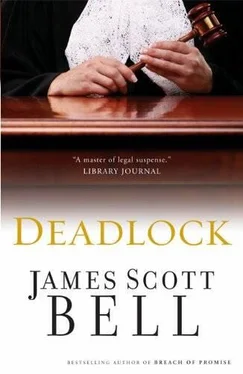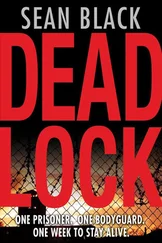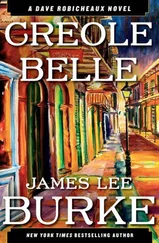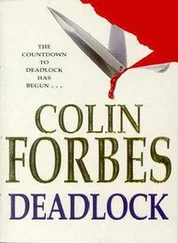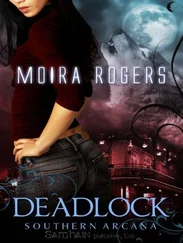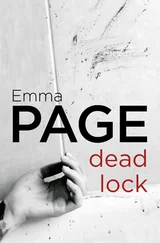Security was everywhere. Men in blue coats and Los Angeles police officers kept order. Lights glared and microphones bobbed at her face. A few questions were shouted simultaneously. Millie put up her hands.
“Thank you for your concern,” she said. “I am feeling pretty well. Much better than I was a week ago, I can assure you. I’ve come out here for some rest and will be thankful if I can avoid answering questions at this time.” She looked around the crowd for her mother. No sign.
“Have you had any word on becoming chief justice?” a female reporter shouted.
“No word. Thank you.” She made an attempt to move forward but the reporters, like a giant amoeba, moved with her.
“Madame Justice, do you feel you can handle the job?” a male reporter asked.
“My only job now is to rest,” Millie said, wondering if her face was giving her away. “I just need to…” And then she saw her mother waving behind the reporters.
“If you’ll excuse me,” she said, trying to move on through. An airport guard told the reporters to clear a path.
“Can you tell us anything else about the accident?” a voice shouted. Another asked, “Was it really an accident?”
The question jarred her, even as she reached her mother. Millie hugged her as cameras whirred and clicked. Her mother felt a little thinner than Millie remembered, but with the same tough hide.
The slick reporter shoved his microphone toward Ethel Hollander. “Is it good to see your daughter?”
Ethel scowled at him. “That’s about the dumbest question I ever heard from a grown man.”
Slick stood up as if slapped. Millie could not help enjoying his look. “Case closed,” she said.
Ethel had a car, a giant Cadillac – circa 1970 and covered with desert dust – waiting in the short-term parking. Behind the wheel sat a stout, friendly looking man. Ethel introduced him as Royal King.
“That’s my real name, too,” he said.
But he drove like a joker. The trip was an adventure in near misses that finally got them to the 405 freeway, heading north. Millie, reclining in the passenger seat, at least felt relieved to finally be heading for some peace.
“How are things in town?” Millie asked her mother.
“Same as always,” Ethel said. “Only more so.”
“Ah,” Millie said, enjoying one of her mother’s famous non-sequiturs. She usually made sense once you unpacked the verbiage.
Royal King said, “We got some reporters in town.”
“Oh, no,” Millie said.
“Yep. You can tell ’cause they have them fifty-dollar haircuts.”
“I’m sorry, Mom. I didn’t want to bring trouble to town.”
“Oh, fudge bumps,” Ethel said. “We can handle ’em.”
“That’s right,” Royal said. “Like a brush fire.”
“Royal’s the fire chief,” Ethel said. “He moved up from Santa Clarita a couple of years ago. He drives me to church on Sundays and Wednesday nights.”
It had been a long time since Millie had thought about her mother’s church. Ethel had attended it faithfully for fifty years now. There was something magnificent in that, even if Millie did not share the beliefs she had been taught there many years ago.
“How is the church doing, Mom?”
“She just keeps rolling along, like that song about the river and the old man who lives in it.”
“Old Man River?” Millie said.
“No, but there’s a song like it with the same title,” Ethel said.
Millie smiled.
“I think you’re going to like our pastor,” Ethel added.
So it begins, Millie thought.
“He’s a real good preacher,” Royal volunteered. “I like his style.”
“Oh?” Millie said casually, being polite about the conversation. In her mind she pictured an older man, perhaps a few years short of retirement, who was making one last stop at the church before his dotage. He’d be full of the old bromides and warnings of hellfire, damnation, and the wages of sins such as dancing and drink. She hoped, if she did meet him, that it would be a short meeting.
“He’s not the kind of preacher you might think,” Ethel said. “He’s had a lot of tragedy in his life.”
“A ton,” Royal said.
“And he received mercy,” Ethel said, “so he gives it out. He ministers to runaway teenagers down in Lancaster. For nothing.”
“Because of what happened with his own daughter,” Royal added.
Millie felt a vague interest in knowing the story, but said nothing.
“And can he pray!” Ethel said. “You should have heard him the night of your accident.”
“What?”
“Yep. That very night, at prayer meeting, I asked for prayer for you. I felt troubled about you for some reason. It was heavy upon me.”
“I remember,” Royal said. “She was almost crying.”
This was odd. “What kind of trouble did you think I was in?”
“I didn’t know, exactly. But I remember the time. I surely do. I felt the Lord leading and looked at the big clock. It was 10:35.”
Millie said, “You were up late.”
“We pray long sometimes,” Royal said. “Pastor really believes in prayer.”
Sure he does, Millie thought. He’s supposed to. So are church people. When she was a little girl, she had, too. But now…
Millie’s mind suddenly snapped to attention. “What time did you say, Mom?”
“What time what?”
“When you looked at the clock.”
“I said 10:35. Yes, sir.”
“Are you absolutely sure?”
“’Course I am. I can still see. Why are you asking?”
Millie did not say, but began to feel cold all over. If it was 10:35 on the west coast, it was 1:35 on the east.
The very time Dr. Cross said she’d flatlined.
The very time she’d had her vision.
“You all right, dear?” Ethel asked.
“Sorry, Mom. I just got a headache.”
“Don’t let’s talk anymore. Royal, you drive nice and smooth now. Let my daughter rest.”
Oh, yes. Sweet rest. She needed that.
But she knew she could not rest. Not now.
It felt like a time warp when Millie saw the old house. Her mother still lived here, would never think of leaving. Wouldn’t even consider changing the basic look of the place. Adobe style on the outside with a flagstone walkway. Cactus plants in the garden under the front window. The lone oak tree that stood like a sentry guarding the ghosts of the past. She’d read books under it as a little girl. Desert shade for an inquiring mind.
The house, built by her father and a group of locals when Millie was ten (she helped dig out the tiny portion of sandy dirt that became the back steps), looked just as it did in the sixties. The capricious weather of California’s high desert (though the townspeople hated high desert as a designation; not good for tourism) seemed to have paid it respect and treated it gently over the years. There was a solidity about it that provided comfort.
Royal scurried around to the passenger side of the car and opened the door for Millie. She swung her legs out carefully, remembering what Dr. Cross said about her ribs – no sudden movements or turns.
A rivulet of warm desert air caressed her face, bringing with it the scent of sage and wildflowers. It was soothing and familiar. There was nothing quite like the breezes here, and she’d loved them growing up. The air was simple, unpretentious. Above all, clean. Not filled with the waste of busses and cars and industry. The act of breathing here was unpressured.
Yes, coming home was the right thing to do. Healing could happen here. Quiet rest. She wouldn’t have to think about anything. The desert did not make demands on you. It did not ask you questions. This was just the place to regain equilibrium, forget thoughts of death and dark visions. Become normal again.
Читать дальше
